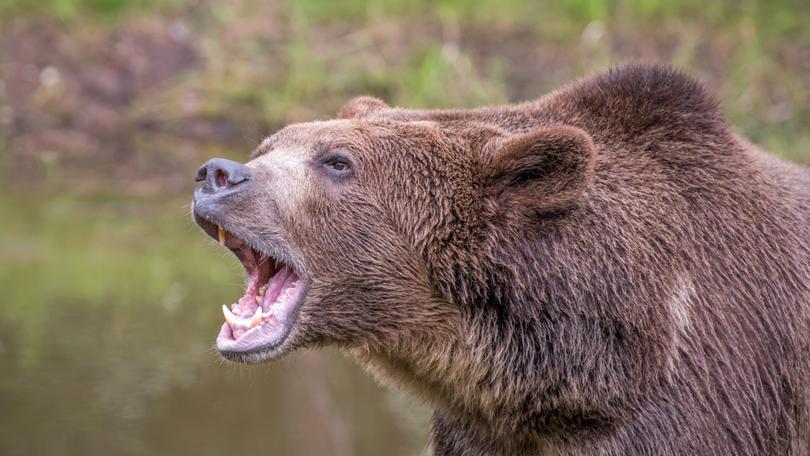Jay Hanna: Why the ‘would you rather be alone with a man or a bear’ debate is flawed and damaging
I consider the hypothetical debate ‘would you rather spend the night in the woods with a man or a bear?’ somewhat ridiculous but also reductive and dangerous.

I’m happy to report that I’ve never encountered a bear in the wild but I am pretty sure I know what would happen if I did. I’d either take off faster than I’ve ever run in my life, which means Yogi would quickly be using one of my ribs as a toothpick, or I’d freeze in terror likely losing control of my bowels in the process, which would make for a worse-tasting meal for a slightly less out of breath bear.
Given you’d have to be a particular kind of crazy to take on an eight-foot-tall grizzly in a bare-knuckle fight, I assume most people would also take the flight or freeze instinctual options.
The primal response I’d have upon seeing a bear amble out of the woods towards me would not be the same as if you swapped the beast for a man. That’s not to say I wouldn’t feel somewhat apprehensive about coming across a strange male in a secluded spot but I’d be unlikely to bolt or soil myself. Plus, life experience tells me that like the vast majority of guys I’ve encountered, he’d probably be a decent bloke and much more likely to bore me to death talking about football or spruiking the merits of the original Star Wars trilogy than to attack me.
Sign up to The Nightly's newsletters.
Get the first look at the digital newspaper, curated daily stories and breaking headlines delivered to your inbox.
By continuing you agree to our Terms and Privacy Policy.Which is partly why I consider the hypothetical “would you rather spend the night in the woods with a man or a bear?” debate — which is raging online with female respondents divided on which scenario would make them feel most at risk — somewhat ridiculous but also reductive and dangerous.
It is all well and good for women on TikTok to wax lyrical about how they would rather have a slumber party with a grizzly than a geezer when they know they’ve got a snowball’s chance in hell of ever encountering a bear (especially if they reside in Australia) but more concerning is the harm this rhetoric can cause by implying all men are potential abusers.
I don’t know how I would function in this world if I truly believed half the population would willingly abuse, assault, rape or murder me given half a chance. And I say that as someone who has experienced both sexual assault and harassment. I am well aware there are awful men out there but they don’t represent most of the men I know, many of whom are among my closest friends.
Don’t get me wrong, I understand why our appalling statistics on gendered violence, sexual assault and harassment have led many women, and in particular victim-survivors, to become increasingly distrustful of men. Like everyone else, I am devastated that Australian women keep being murdered, mostly by men who are known to them. I am frustrated that no matter how loudly we call for action and no matter what reforms are implemented or how much extra funding is allocated, the issue isn’t getting better. But it is important not to lose sight of the fact that this is not a woman vs man problem, it is a community vs criminal problem.
We need a whole societal approach if we are to stand any chance of implementing widespread change and achieving effective solutions. Ostracising half the population by labelling them more frightening than apex predators is not helpful and simply perpetuates the dichotomous narratives that have enabled misogyny to fester and thrive in the first place.
As the mother of a boy who is just months away from becoming a teenager, I am concerned about the damage that can be done, particularly to impressionable young men and teens, by using broad brushstrokes to paint all males as untrustworthy and dangerous.
Of course, it is important that we talk to boys about consent, sexism and male privilege but do we really need to do that while negating their place in society? By unfavourably comparing young men to wild beasts we are undervaluing their sense of self and increasing the risks they will seek validation elsewhere — in the wide open online arms of the Andrew Tates of this world, for instance.
And for mums everywhere that scenario really is as terrifying as being alone in the woods with a bear.

